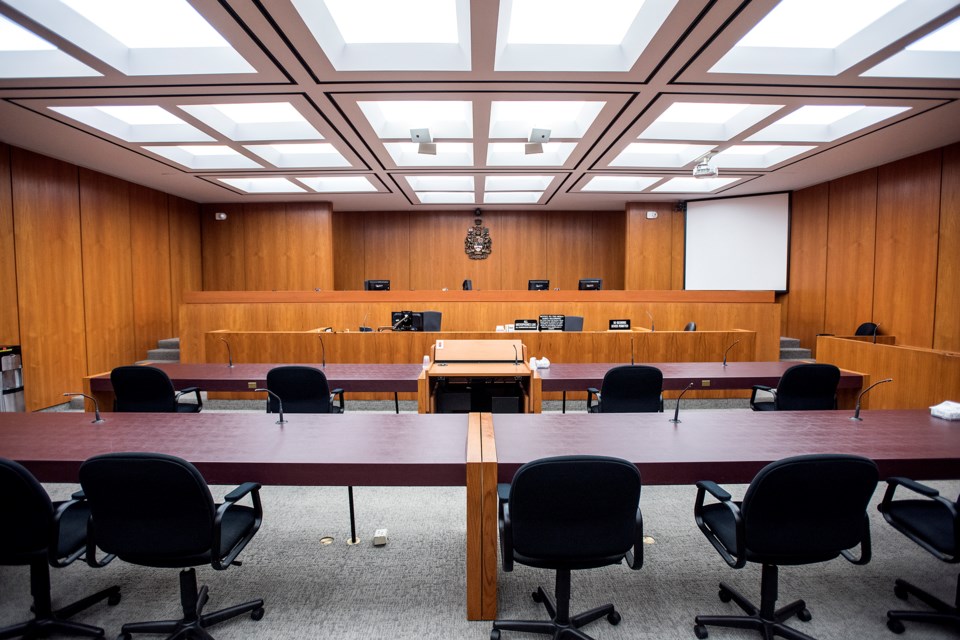A Red Deer man living with substance use disorder has filed a legal action against the Alberta government for its plan to close the city’s only supervised drug-use site next year, a move he says violates his Charter-protected rights and will put his life at risk.
Aaron Brown, 40, said he started using fentanyl and crystal meth in 2017 after losing his job and custody of his children. His life quickly spiralled and he ended up living on the streets of Red Deer and stealing to pay for drugs. He said, in a sworn affidavit, that he overdosed more times than he can count and was frequently hospitalized or jailed. He also acquired Hepatitis C.
He said his life changed when the Red Deer Overdose Prevention Site, which provides a hygienic space for people to use drugs under medical supervision, opened in 2018. Staff have provided life-saving support to Mr. Brown and, over time, have helped him decrease the frequency of his drug use. He has also secured permanent housing and other social supports.
“I feel like I am on the path to turnaround my life,” he said in the affidavit. Mr. Brown added that he is not in a position yet to stop using substances completely and has not been successful on methadone or suboxone, which are used to treat opioid use disorder.
“It is terrifying to imagine what my life will become once the Red Deer OPS closes. It will essentially be a death sentence for me and the many others who use the facility.”
Opinion: Supervised consumption services improve public health in ways that benefit all Calgarians
It is alleged in the legal action, filed Monday, that closing the site will breach multiple Charter entitlements, including Mr. Brown’s right to life, liberty and security of the person; right not to be subjected to any cruel and unusual treatment or punishment; and right to the equal protection and equal benefit of the law without discrimination. None of the allegations have been proven in court.
Supervised consumption services have come under fire from political leaders across Canada in recent months as part of the growing debate on how to best address the drug toxicity crisis. Critics say the sites contribute to social disorder and deteriorating public safety.
Red Deer city council earlier this year passed a motion to ask the Alberta government to phase out the OPS. The province responded in September by announcing that it will shut it down by 2025. The government has shuttered such sites before, in Lethbridge and Edmonton, but has replaced them with smaller, mobile sites.
There is no plan for an alternative facility in Red Deer.
Hunter Baril, press secretary to Addictions Minister Dan Williams, declined to comment on the legal action as it is before the courts. But, he said, “reasonable solutions to support recovery and community safety” will be put in place.
The province has said that a team of paramedics and nurses will monitor for overdoses near the Red Deer homeless shelter and surrounding block when the OPS closes. Recovery coaches will also do outreach in the area and detox capacity will be expanded at the shelter.
But Mr. Brown believes this will do little to prevent harms from occurring, especially elsewhere in the city. His Edmonton-based lawyer, Avnish Nanda, said evidence is clear that supervised consumption services save lives.
Opinion: Closing supervised consumption sites in Ontario is a fatal mistake
“This raises the question of why [Premier] Danielle Smith and her government are intent on denying vulnerable Albertans access to life-saving and sustaining health care services,” Mr. Nanda said.
Staff at the Red Deer OPS have responded to more than 6,500 adverse events since opening, the majority of which required life-saving interventions such as oxygen or naloxone. More than 207,000 client visits have been recorded at the site, according to provincial data. There have been no deaths on-site.
In the community, roughly 400 people have fatally overdosed since Alberta began collecting data in 2016.
The Alberta government has been taken to court previously for other drug-related policies, including on its identification requirements for clients of supervised consumption services and shutdown of an injectable opioid agonist treatment program.
Meanwhile, in Ontario, the government tabled legislation on Monday to prohibit sites in proximity to schools and child-care centres – effectively closing 10 of the province’s 23 current sites – and to prevent new sites from opening. Federal Conservative Leader Pierre Poilievre has promised to pull funding from all sites if his party forms government.



